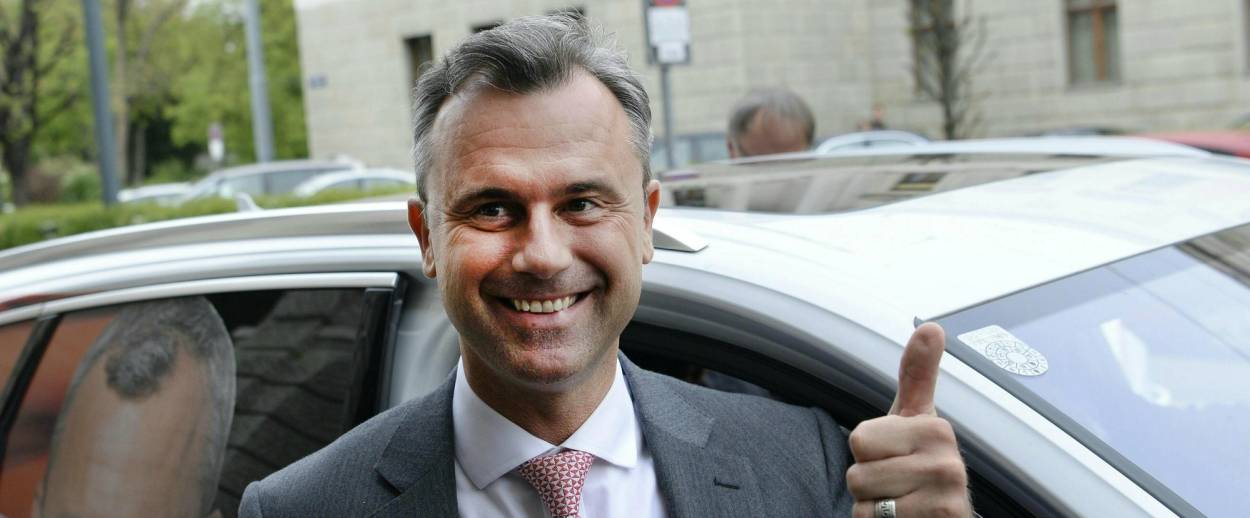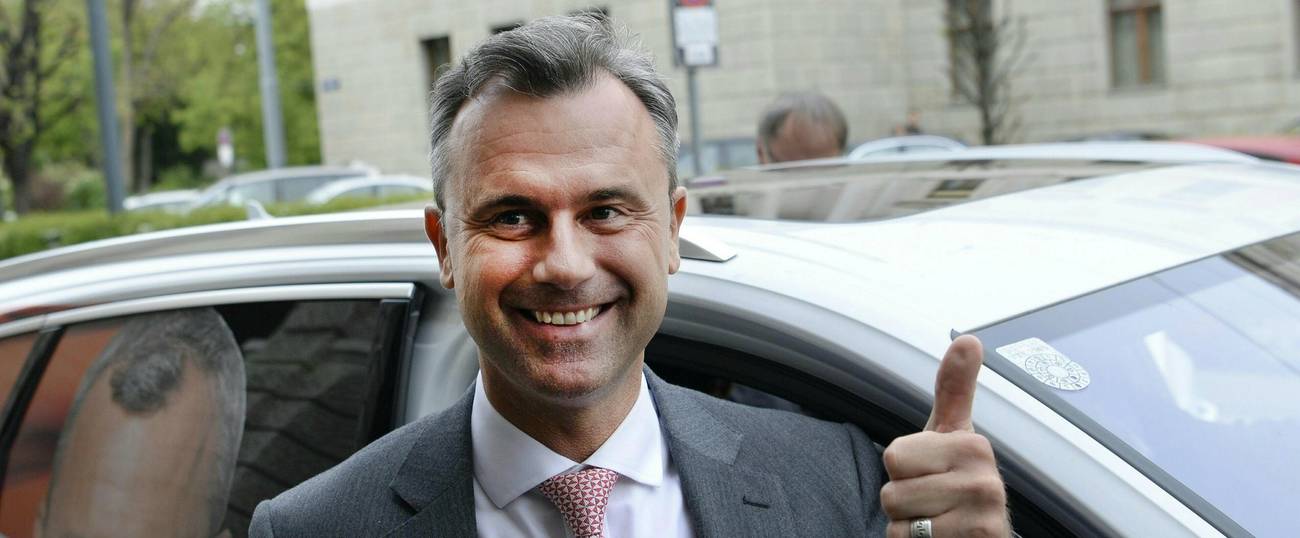Norbert Hofer Wins First Round of Austria’s Presidential Election, Sends Dominant Parties Reeling
The victory by Hofer—the affable face Austria’s far-right FPÖ Party who ran on an anti-immigration platform—could be a sign of things to come




A complete collapse of confidence in the existing two-party system in Austria allowed for a flabbergasting result in the first round of the country’s presidential election on Sunday, as Norbert Hofer, the candidate for the far-right Freedom Party of Austria (FPÖ), won 35.3 percent of the vote in a six-person race. A columnist for the Austrian daily Die Presse called the result an “earthquake” which showed that the rot-schwarz (red-black, the colors of the SPÖ and ÖVP) monopoly on political life is dead. Their prospects for the next legislative elections, due to be held in 2018, look bleak.
The Social Democratic Party (SPÖ) on the left and the Austrian People’s Party (ÖVP) on the right have dominated Austrian politics since the World War II. In this election, their two candidates, Rudolf Hundstorfer and Andreas Khol, came in fourth and fifth with a combined 22 percent of the vote. Hofer, who threatened during the election campaign to sack the current SPÖ-ÖVP government if elected, won eight of Austria’s nine Bundesländer (states), sweeping large parts of the country and even winning outright majorities in certain rural districts. Alexander Van der Bellen of Die Grünen (The Greens) came in second place with 21.3 percent, winning the Vienna vote in the process.
With a background in engineering prior to entering politics, Hofer presented himself during the election campaign as the affable face of the far-right, in contrast to the divisive Heinz-Christian Strache, the FPÖ leader whose recent visit to Israel proved controversial. A gun enthusiast and environmentalist, Hofer ran on an anti-immigration platform but was able to use his image to smooth over the party’s rhetoric on migrants and asylum seekers. He joins the likes of Louis Aliot and Florian Philippot of France’s Front National in terms of being cleaner, sharper presentations of the far-right image.
These election results shows just how both the Eurozone and refugee crises have shaken up European politics. Hofer’s victory in the first round reflects how the far-right and politics of nationalism, particularism, and xenophobia have taken hold. Marine Le Pen is all but guaranteed a place on the second ballot in next year’s presidential elections in France. The anti-immigrant Alternative für Deutschland is threatening Angela Merkel’s political future. Jarosław Kaczyński’s Law and Justice is undermining and dismantling Polish democracy, while Hungary’s Viktor Orbán never misses a chance to weaken Europe’s policies toward refugees.
Indeed, if one were to overlay maps of Hofer’s concentrations of support with those parts of Austria most likely to have been witness to the refugee crisis and with higher rates of unemployment, the pattern would be rather obvious. The FPÖ candidate did very well, not only in Kärnten—long a bastion of FPÖ support—but also Burgenland and Steiermark, states that share borders with Hungary and Slovenia respectively and have experienced increases in the joblessness rate over the past twelve months. Hofer’s support was also more male and less educated—members of the working class most impacted by economic change in Europe.
No candidate having achieved 50 percent of the vote on Sunday, Hofer and Van der Bellen will face each other in a runoff contest on May 22. Frankly, it is impossible to tell at this stage who will win. When previously polled, Austrians indicated Van der Bellen—who opposes the SPÖ-ÖVP government’s restrictions on asylum migration—would beat Hofer in a two-way race, however, polling had not once shown the FPÖ candidate coming out on top in the first round. It is also unclear, at this stage, whether Merkel or other European leaders will intervene and what effect international pressure—or the prospect of isolation—might have on voters.
At the very least, it is of deep concern, embarrassing and shameful, that a candidate of the far right should be able to chalk up such a comfortable win in the first round. It was bad enough when the war criminal Kurt Waldheim was elected President in 1986, and the fascist Jörg Haider became the head of the state of Kärnten in 1999. Once more, Austria finds itself on the verge of electing an heir of fascism to high office. Perhaps “fool me once” doesn’t quite translate.
Liam Hoare is a freelance writer based in Vienna, where he is the Europe Editor for Moment and a frequent contributor to Tablet.